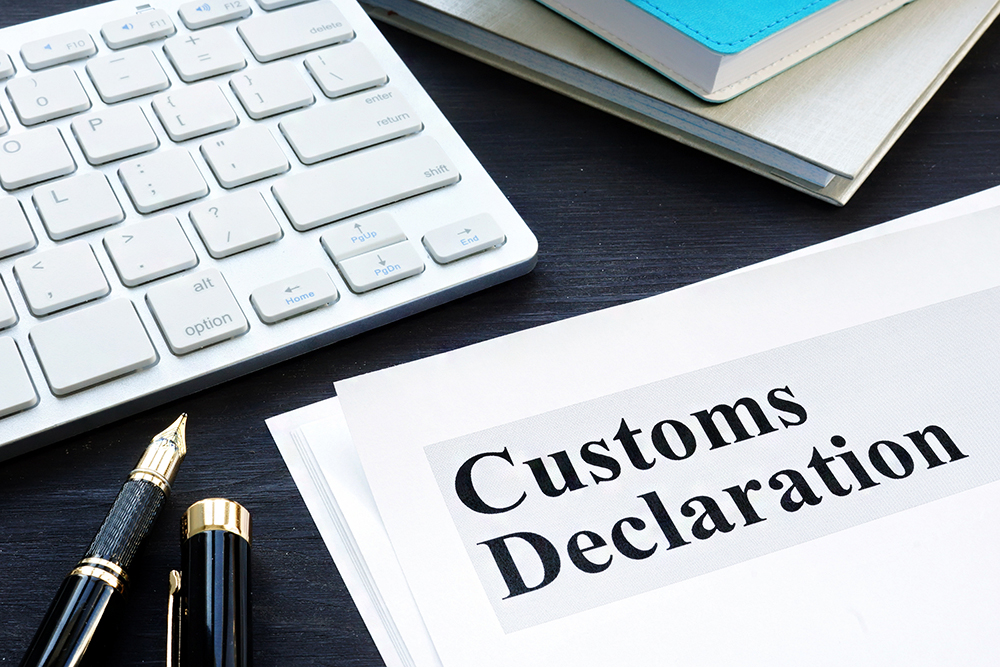If you are importing/exporting goods from anywhere in the world then customs software could be the best solution for you. The software will automate your processes, take data from multiple sources, calculate duties and ensure accuracy, efficiency and also save you costs. If you’re unsure or would like to find out more, we can advise you on all the options available.
For submitting your customs declarations, you can engage with a customs broker, freight forwarder or logistics provider, or businesses that want to do this themselves you can acquire the appropriate customs software and secure the necessary authorisations from HMRC. Again, our Consultants can support you through the authorisation process.
Our Consultants can advise you on the customs declaration process, answer any questions you have, and review your documents or forms for submission. They will provide you with the latest advice to ensure your compliance with HMRC and support your business throughout the process.
Want to know more? Contact us using the contact form here and one of the team will get back to you.
Customs Declaration Enquiry Form
What is a Customs Declaration?
A customs declaration is an official document that lists and gives details of goods that are being imported or exported’ (European Commission). Typically, it is the owner of the goods or a person acting on their behalf, or the person who has control over the goods who will submit the declaration. The declaration should be lodged with the customs office where the goods were or will shortly be presented. In order to comply with the legal obligations and to place goods under a customs procedure, a customs declaration needs to be lodged. This should happen upon the importation of goods and goods intended for export.
The Single Administrative Document (SAD) (form C88) details your goods and allows their movement around the world. You are required to detail; what the goods are, movement of them, their commodity code (also called tariff code) and the Customs Procedure Code (CPC). The SAD form breaks down into 54 boxes and the full version has 8 parts. If errors are made on this form you may receive penalties and seizures.
CDS is a modern and flexible system that will allow importers and exporters who trade outside of the EU to include more items with each declaration, potentially reducing how many declarations they need to make.
For the first time, your Government Gateway account will include a record of all your businesses’ imports and exports.
HMRC will contact you directly if you are currently an importer, or if you use an agent of freight forwarder please contact them. It is recommended that any business not currently registered with HMRC as importing use an agent for their imports/exports.
CDS is being introduced gradually and the timing of a move over to it will depend on when your business, or your software developer or agent, are ready. Developers should already be working with HMRC to update their software applications and, if they haven’t already, they will contact you soon to explain if there’s anything else you need to do.
For most importers and exporters this will include confirming your company’s Government Gateway account details, registering for the CDS service through it and authorising their software application.
Access to CDS
If you handle your own importation documents through CHIEF then your in-house software team will be given access to CDS by HMRC for testing compatibility. HMRC will contact you direct.
If you use an agent or freight forwarder they should be already speaking with HMRC, so you should contact them ASAP as there will be changes to the documentation you will be asked to provide them for importing plants. Tariffs will change & therefore HMRC documentation requirements will also change.
What To Do Now
If your business trades outside of the EU, you should use this time to familiarise yourself with changes to the tariff list which has been updated to meet the requirements of the Union Customs Code. Guidance explaining the new changes to the tariff can be found on the Government website
Delivering the deal negotiated with the EU remains the Government’s top priority. However, the Government must prepare for every eventuality, including a no-deal scenario. With just a few weeks until our exit from the EU, we have reached the point where everyone needs to accelerate and intensify preparations.
There is the latest version of the EU Exit partnership pack has an EU exit portal which gives businesses and individuals guidance on what you a need to do to prepare.
Further Information
HMRC has published a series of resources to help traders prepare, these can be found at: www.gov.uk/customsdeclarationservice
Customs Declaration Toolkit
The Customs Declaration Toolkit provides a comprehensive overview of CDS, explaining the benefits traders will experience using the new system, as well as key information about what businesses need to do to prepare: https://www.gov.uk/government/publications/customs-declaration-service-communication-pack
UK Trade Tariff guide
The UK Trade Tariff guide underpins the declaration process, detailing the classification information for all goods, including any special conditions that may apply. The guide also explains the key changes brought about by the Union Customs Code (UCC) and signposts to affiliated GOV.UK pages, where further information can be found: https://www.gov.uk/government/publications/customs-declaration-service-communication-pack




